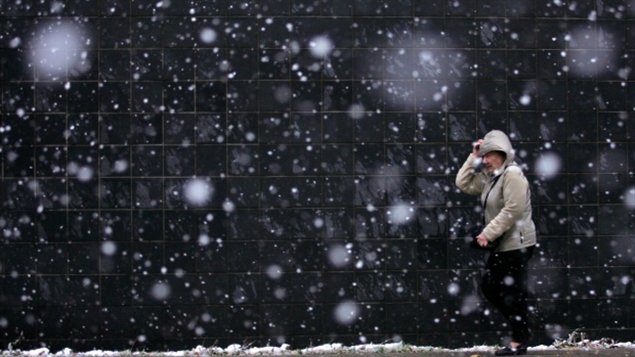Cold is relative in Canada. Depending on where you live, your tolerance and preparation for it can vary wildly. In Toronto, -20 C can send people scrambling to cope, whereas in the far north, temperatures in this range are a normal part of winter, life goes on in the appropriate clothing and covering.
Most Canadians are familiar with ‘wind-chill warnings’ that alert us to just how cold it feels outside when the air temperature and the wind speed are factored together.
Now, Environment Canada, in collaboration with Health Canada, is adding ‘extreme cold warnings’ to the way in which the government agency will inform Canadians about dangerous winter weather.
Blair Morrow, a Health and Air Quality program meteorologist, is overseeing the change that will bring ‘extreme cold warnings’ into play, along with wind chill warnings, sometime in 2014. The change is an effort to allow Canadians the opportunity to get ready for these cold snaps; everything from having enough food at home to having the car prepared or plugged in, to making sure your clothing is adequate to protect you from the cold.
We just wanted to provide better service
Morrow says that the current wind chill warning system does not take into account those days and nights when the wind may be very calm and does not add to the cold, but the temperature itself, at -40 C, for example, is certainly dangerous enough to warrant an ‘extreme cold warning’.
David Phillips, a senior climatologist with Environment Canada, reminds us that each winter about 100 people die of cold-related causes and many more suffer from frostbite and the less serious frost-nip. He says many Canadians forget they live in second-coldest country in the world after Russia.
Blair Morrow says this added warning to our weather forecasts is in an effort to allow organizations, such as shelters for the homeless and emergency services, to be ready to accommodate those that need help during these periods.
Carmel Kilkenny spoke with meteorolgist Blair Morrow to find out more:
Listen






For reasons beyond our control, and for an undetermined period of time, our comment section is now closed. However, our social networks remain open to your contributions.